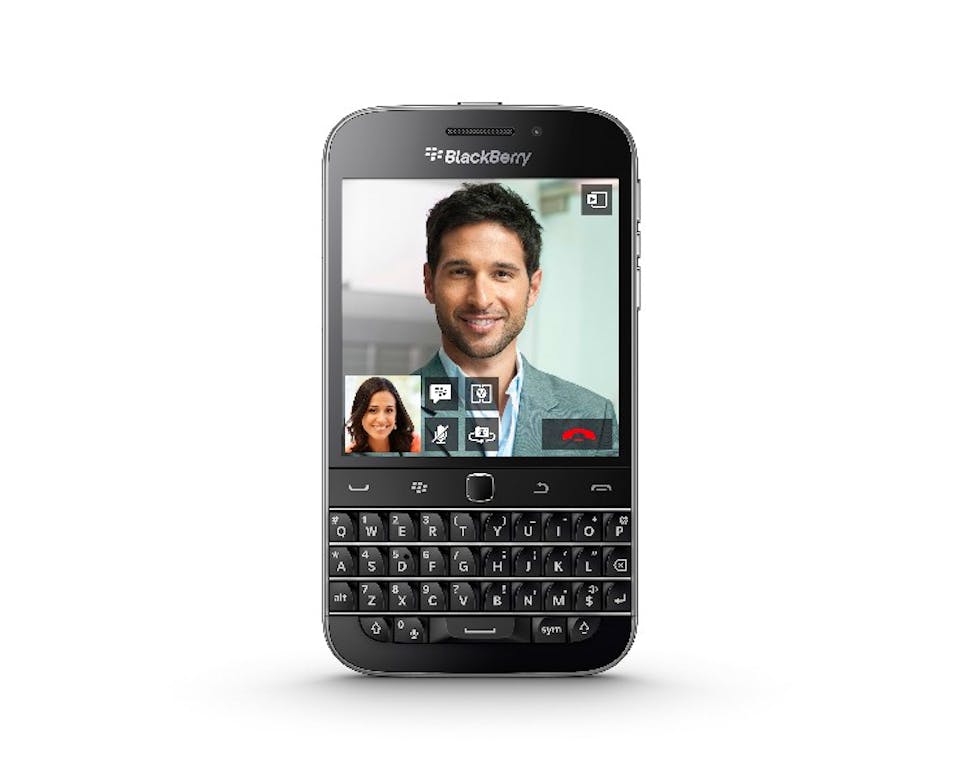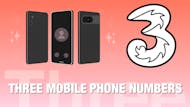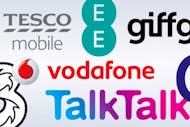The shift from more simple mobile phones to smartphones was a massive one; before, business mobile phones tended to be ruthlessly practical handsets that made phone calls and sent the odd email. Now, business mobile phones have to be as connected as any personal smartphone that is focussed on media consumption.
But business needs, such as security, have not gone away. They have merely evolved with the times. This makes purchasing decisions very tricky, so we have assembled what we think are the best mobile phones that businesses of all sizes can make use of.
Best Business Mobile Phones - iPhone 6S/6S Plus
The iPhone, and iOS specifically, used to be sneered at by the business community. Concerns about security and how the iOS platform works with enterprise software were often cited as a reason not to choose an iPhone. Now those concerns are largely redundant.
The iPhone 6s, and the bigger 6s Plus, are both incredibly capable smartphones. They both feature a gorgeous Retina HD screen and a 12-megapixel rear camera and the 6S Plus shoots video in 4K. Both models have touch ID, which can add an extra layer of security for business users.
In terms of pure build quality, Apple are still ahead of everyone else. But that lead is vanishing at a rapid rate. So although the 6S and 6S Plus are probably the best built handsets on this list, businesses must decide if the extra cost is justified.
Best business Mobile Phones – iPhone SE
The newly released iPhone SE gives you almost everything the 6S does in terms of raw technical grunt but it does it in a much smaller chassis.
However, a problem a large number of businesses have with iPhones, and Apple products in general, is one of cost. Apple products are generally more expensive so businesses tend to veer away from them. The iPhone SE is cheaper than the 6S but it is still expensive compared to Android handsets with an equivalent specification. It is strong on security though, so businesses who handle sensitive data may feel safer with smartphones that have closed systems and Touch ID.
Best Business Mobile Phones - Samsung S6
Now that the Samsung Galaxy S6 is a bit cheaper, does it provide a good option for businesses? The answer is a resounding yes.
Samsung has made a real effort to pitch the S series towards business, with varying levels of success. The S6 is the first Galaxy handset to really nail down its business proposition, largely down to Knox, Samsung’s enterprise security mobile security solution.
Knox helps users securely separate their personal and professional data. Basically, this means you are effectively carrying a “home phone” and “work phone” in one handset. Android, an open platform, is a bit of a nightmare for enterprise so solutions like Knox help keep business smartphones safe from viruses, hacking and unauthorised access.
Until Knox, it was hard to recommend an Android phone due to the open nature of Android as an operating system. However with these sorts of solutions, it’s far easy to sell Android to enterprise users.
The S6 itself is a very well built and powerful smartphone. It has a fingerprint scanner for added security and a rather splendid Quad HD Super-AMOLED screen. Even though it’s been succeeded by Samsung’s excellent Galaxy S7, the S6 is still a superb overall package for businesses to consider.
Best Business Mobile Phones - Huawei Nexus 6P
Google and Huawei’s Nexus 6P is also a candidate for business users when they are considering an Android smartphone. The Nexus 6P manages to combine some of the best features of several different Android handsets in one package.
Business users concerned about security will be pleased to see a fingerprint sensor as well as a 518 ppi (pixels per inch) display for viewing those pesky spreadsheets. However, unlike the S6, it does not have an inbuilt security application for enterprise users. So businesses will have to explore their own security solution, if they are concerned about vulnerabilities.
Best Business Mobile Phones – BlackBerry Classic
You could be forgiven for thinking that BlackBerry had sank to the bottom of the sea, never to be seen again, but a BlackBerry is still very much an option for business users.
Although you may not consider it a “smartphone” as such by looks alone, the BlackBerry Classic is incredibly capable and squarely aimed at no nonsense business users. It has a tough chassis, QWERTY keyboard and a display made from Corning Gorilla Glass.
The BlackBerry Classic also comes with DTEK, an app that helps business users control security. This can help alleviate some of the security concerns that arise from the Android operating system. DTEK adds an extra layer of malware protection, a screen lock and factory reset protection.
If thieves steals your handset, the first thing they will do is to try and restore your handset to factory settings. DTEK stops this, which essentially makes your handset a lot less attractive to thieves.
BlackBerry has always been a brand of phone that people associate with business and despite some serious challenges, BlackBerry remain a good choice for enterprise users. If you are worried about BlackBerry disappearing, which is valid, bear in mind it’s highly likely they’ll get bought so customer support should not be an issue.
Best Business Mobile Phones - Moto G4 Plus
The Moto G4 Plus is an astounding handset for personal users, but businesses have different factors to weigh up when they are judging a purchase. Thankfully the G4 Plus also delivers for enterprise users. Most importantly it’s cheap, so it’s an easy purchase for a business justify at £159.95.
Technically the G4 Plus is more than capable of handling whatever you throw at it. With the option of 2GB or 4GB of RAM the G4 Plus can handle business apps with ease. Plus, you have the option of expandable storage up to 128GB.
Doubts about security do bring the G4 Plus down slightly, but these doubts are only general doubts about Android rather than specific to the phone. The G4 Plus is reasonably priced, technically good and flexible enough to suit most business needs.
Best Business Mobile Phones – Microsoft Lumia 640 XL
Windows Phone quite often gets left out of these conversations and that’s a huge shame as it actually might be the perfect mobile OS for many businesses.
If, like most companies, you use Microsoft Office and Windows, Windows Phone easily slots into your existing set up. It also lacks the security issues that can plague other mobile phone operating systems. This is partly security through obscurity; it’s the least popular Phone OS so criminals aren’t targeting it, but it is also partly due to Microsoft’s own work in keeping Windows Phone safe.
The Lumia 640 XL may be a 2015 handset but an incredibly capable smartphone. It’s brilliantly designed and rather sturdy, though not as drop proof as the BlackBerry Classic. The 640 XL’s main drawback is its technical power. With only 1GB of RAM it is vulnerable to slow down and is not particularly future proof, which is something for businesses to think about long term.
However, if power is not especially important for your mobile business needs, then the Lumia 640 XL is an excellent choice.










